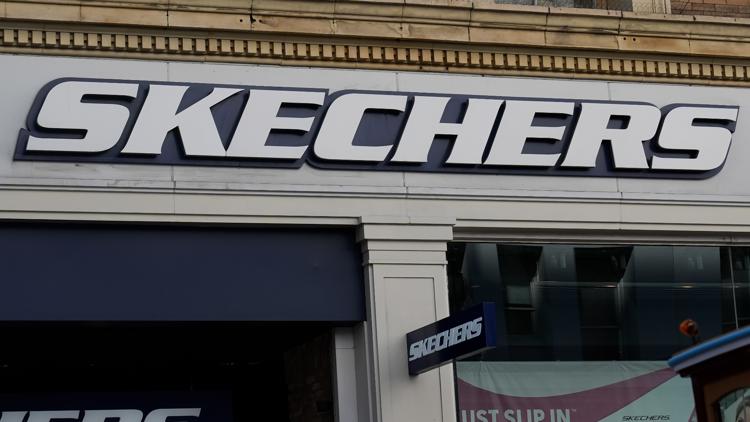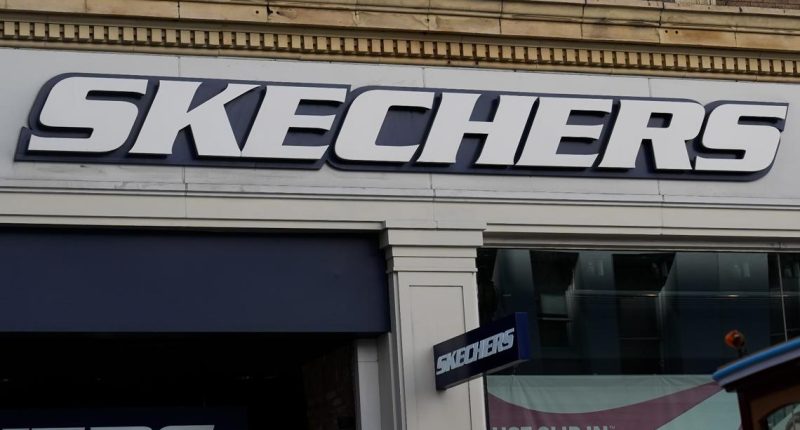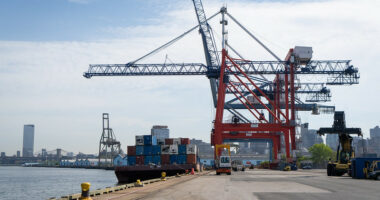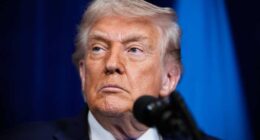Share this @internewscast.com

WASHINGTON — The shoe company Skechers is being acquired for more than $9 billion to be taken private by the investment firm by 3G Capital.
The agreement occurs amid increasing uncertainty regarding the impact of U.S. President Donald Trump’s tariffs on foreign goods, especially for companies manufacturing their products overseas, such as in China. Athletic shoe manufacturers have made significant investments in production across Asia.
The proposed $63 per share offer represents a 30% premium to Skechers’ 15-day volume-weighted average stock price. The deal received unanimous approval from Skechers’ board.
Skechers shares jumped nearly 25% Monday, to $61.56.
In the press release announcing the agreement, the companies did not address the potential effects of Trump’s tariffs on their future business operations. Nonetheless, Skechers indicates that approximately two-thirds of its revenue is sourced from sales outside the U.S., with China contributing 15% of the company’s revenue, according to data from the firm FactSet.
The deal comes at a precarious time with Trump’s ongoing, on-again-off-again tariff announcements. Like many other companies increasingly have done since Trump’s widespread tariff announcements, Skechers did not issue guidance when it released its first quarter earnings in April. Chief Financial Officer John Vandemore told investors that the “current environment is simply too dynamic from which to plan results with a reasonable assurance of success.”
Executives also said they would be looking to minimize products going to the U.S. from “high-cost locations,” including the impact of tariffs. The company did not immediately provide a breakdown of foreign production, but many of their shoes come with a “Made in China” stamp.
Trump raised the tariff on Chinese imports to 125% in early April, hours after China boosted the duty on American goods to 84% in an escalating battle that threatens to disrupt trade between the world’s two largest economies.
Skechers executives said last month that the company had several “levers” it could pull to deal with tariffs, including cost sharing with vendors, sourcing optimization, and price adjustments.
“We’re looking at how we optimize the global cost of tariffs in all markets when we look to move production around,” Vandemore said last month. “Obviously, with an effective tariff rate at about 159%, products from China to the U.S. are prohibitively expensive.”
Skechers has about 5,300 retail stores worldwide, about 1,800 company-owned.
About 97% of the clothes and shoes purchased in the U.S. are imported, predominantly from Asia, according to the American Apparel & Footwear Association. Using factories overseas has kept labor costs down for U.S. companies, but neither they nor their overseas suppliers are likely to absorb price increases due to new tariffs.
When the deal closes, the company will be led by Skechers Chairman and CEO Robert Greenberg and his management team. Its headquarters will remain in Manhattan Beach, California, where it was founded more than three decades ago.
Skechers reported a record $9 billion in revenue in 2024 with net earnings of $640 million.
The deal with 3G Capital is expected to close in the third quarter this year.

















